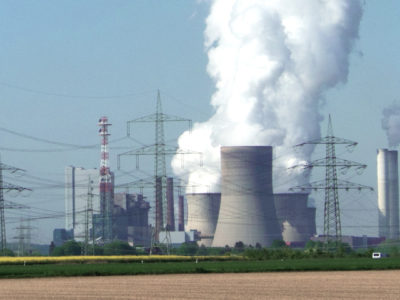
26 January 2024
Pros and Cons of Nuclear vs Renewable Energy – and the Insurance Implications
The government is currently considering the construction of a new large-scale nuclear plant, despite misgivings following delays in ongoing projects. Ministers say this initiative represents the most significant expansion in the sector in 70 years, aiming to reduce dependence on foreign supply and quadrupling energy production by the year 2050.
This blog will take a look at the pros and cons of nuclear energy compared to other energy sources, and their associated insurance risks.

Nuclear Energy
Pros- Low greenhouse gas emissions
- High energy density
- Reliable and stable power supply
- Nuclear accidents
- Radioactive waste
- High initial costs
Renewable Energy Sources
Pros- Low environmental impact
- Abundant resources
- Distributed generation
- Intermittency
- Land use
- Resource limitations
Nuclear Energy Insurance Risks
What are the main insurance risks when it comes to nuclear power?- Property damage
- Liability
- Regulatory compliance
- Business interruption
- Political and regulatory risks
- Reinsurance challenges
Renewable Energy Insurance Risks
How do the risks of renewable energy compare?- Extreme weather and natural disaster
- Technology and innovation
- Supply chain
- Cyber security
- Political, policy and regulatory
- Long-term environmental implications
Navigating our Energies of the Future
Striking a balance between the benefits and drawbacks of nuclear and renewable energy requires comprehensive risk management strategies, informed by advancements in technology, regulation and insurance practices. Insurance companies will need to assess, price and manage these many and complex risks effectively and be nimble in navigating them. At the same time, the insurance industry as a whole must play an important role as an investor in nuclear energy, analysing its investments as contribution to climate change, loss of biodiversity and pollution, etc, and maintaining a medium and long-term vision. Regulatory risks are also fundamental. It’s clear we’re in a transition period when it comes to energy, and that regulatory changes occur more rapidly than a few decades ago. It’s essential, therefore, for insurance companies to have well-trained teams in matters of climate change and energy transition, who can stay prepared by foreseeing all changes and implications on the horizon.Other Blogs that may be of interest:
Why all businesses require Directors and Officers insurance (ascendbroking.co.uk) New minimum standards for energy efficiency in properties - Ascend Broking GroupAny questions? Please don’t hesitate to contact one of our team.
Chris.buchholz@ascendbroking.co.uk| Mobile: 07842 021430

Tags:renewable
Recent Posts
Ascend Broking
ASCEND BROKING GROUP LAUNCHES ASCEND RISK
Ascend Broking





